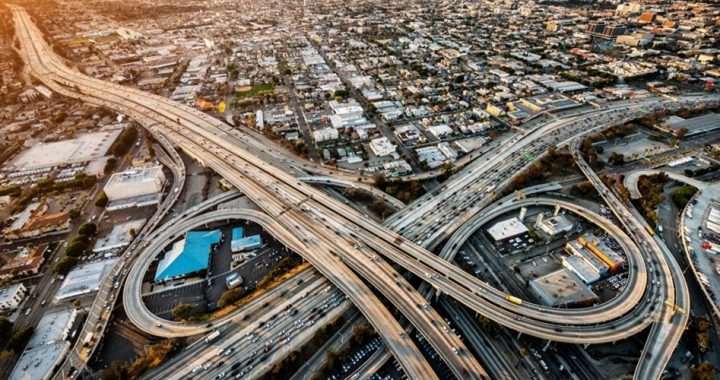
On the surface, the White House’s plan to rebuild America’s failing infrastructure looks like magic: The job is going to cost $1.5 trillion, but the federal government will only have to “invest” $20 billion each year for the next 10 years to get the job done. The rest will come from states and local municipalities in response to various “incentives” through the grant process. Additionally, the White House’s proposed plan will cut the permitting process down from the usual 10 to 13 years to just 24 months — 21 months to consider the project and three months to approve it. It also relies heavily on the concept of “public-private partnerships” to fund the program.
The president promoted the idea that “it is time to give Americans the working, modern infrastructure they deserve.” Of course, the government has nothing to give which it has not already previously extracted from its citizens. But no matter. Trump added:
I ask the Congress to act soon on an infrastructure bill that will: stimulate at least $1.5 trillion in new investment over the next 10 years, shorten the process for approving projects to two years or less, address unmet rural infrastructure needs, empower State and local authorities, and train the American workforce of the future….
The product of these efforts is a roadmap for the Congress to draft and pass the most comprehensive infrastructure bill in our Nation’s history.… The reforms set forth in my plan strengthen the economy, make our country more competitive, reduce the costs of goods and services for American families, and enable Americans to build their lives on top of the best infrastructure in the world.
And all this for a mere $20 billion a year!
But it’s going to take some doing to get Congress to go along even with this fantastic deal. An unnamed White House official told NBC News that Trump’s plan is just a proposal and not a “take-it-or-leave-it” deal, adding that “This is the start of a negotiation — bicameral, bipartisan negotiation — to find the best solution for infrastructure in the U.S. We envision this will be a bipartisan push.”
He got that right: It is going to be a push. First off, where will the $20 billion a year come from? That same unnamed White House official said that the money would come from a “whole series of places where the administration is suggesting reduced funding … out of savings from other areas of the federal budget.”
But it won’t come from cuts in the massive welfare state’s tsunami that’s growing by the hour, i.e., Social Security and Medicare. It’ll come from somewhere else, according to that official.
The “deal” will be so fantastic that state and local officials will supposedly jump on board immediately, and federal grants will match state and local grants, doubling up on the federal dollars. There will be expanded federal loan programs to step in where private banks fear to tread for fear of losing their money. There will be “private investment” from locals and from overseas, according to the plan. This capital will see opportunities to invest in infrastructure projects and return a profit, somehow. Suggestions abound: football stadiums, pay-as-you-drive highways, parking complexes with monthly fees attached, and so on. There will be bonds offered to investors, with special federal and perhaps state tax breaks and incentives attached to make them even more attractive.
Trump’s reliance on public-private partnerships (PPPs) to accomplish the task is fraught with difficulties. If Congress antes up the funds, crony capitalists will be drawn to the federal punchbowl like flies at a picnic. Fred Smith, writing for the Competitive Enterprise Institute (CEI) was blunt: This will turn into pure “log-rolling and pork-barrel politics: ‘I’ll vote for your PPP if you vote for mine.’”
The funds will likely be doled out to those with the greatest political influence rather than being applied where they will do the most good. Without the free market to determine the most effective investment of limited funds, those decisions will likely depend not on economics, but on politics.
Smith said that PPPs are notoriously corrupt: “Crony capitalism abounds in the PPP world.” More importantly, “This Mixed Economy model is less honest than true socialism. If things go wrong it will be capitalism — not government — that will be blamed.”
Readers shouldn’t be too concerned about Trump’s plan to use magic and pixie dust through the “miracle” of public-private partnerships to rebuild the country’s infrastructure. Trump and the Congress are still smarting from criticism over the budget-busting bill signed into law last week lifting spending caps that added another $300 billion to the national debt. And now with the White House’s $4.4 trillion budget proposal being released on Monday morning with its trillion-dollar annual deficits, this bit of magic isn’t likely to see the legislative light of day.
Photo: EXTREME-PHOTOGRAPHER via iStock / Getty Images
An Ivy League graduate and former investment advisor, Bob is a regular contributor to The New American magazine and blogs frequently at LightFromTheRight.com, primarily on economics and politics. He can be reached at [email protected].
Related article:
Trump Infrastructure Proposal Illustrative of Modern American Politics



